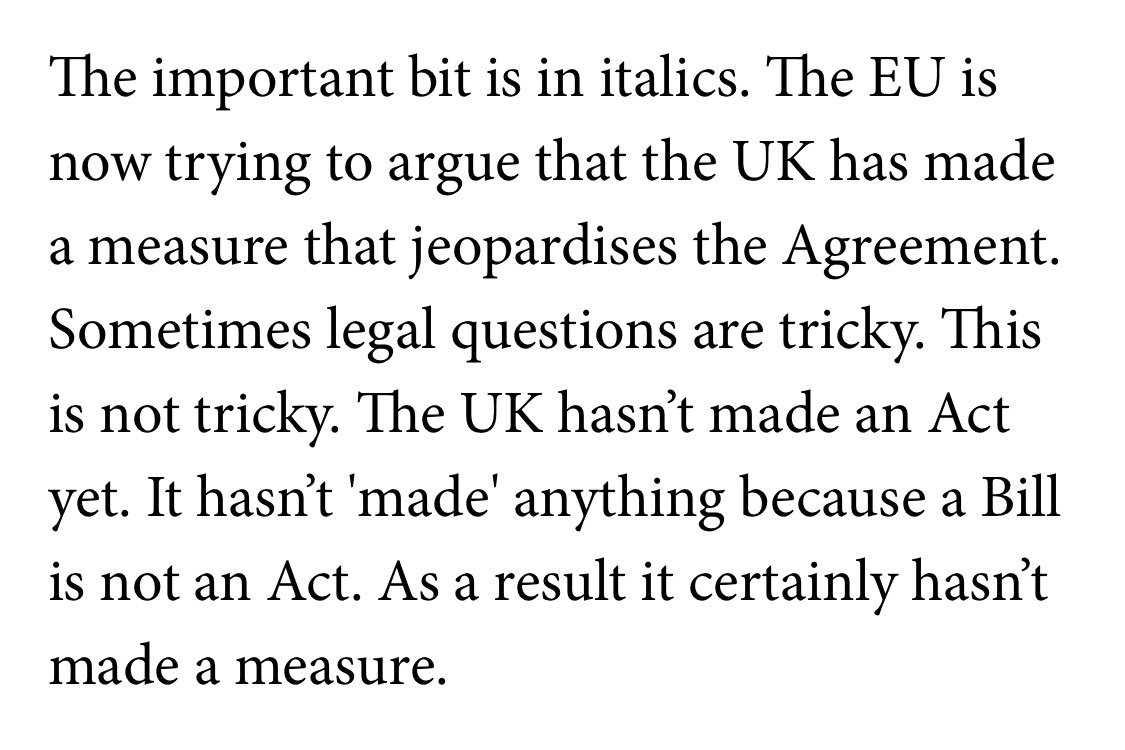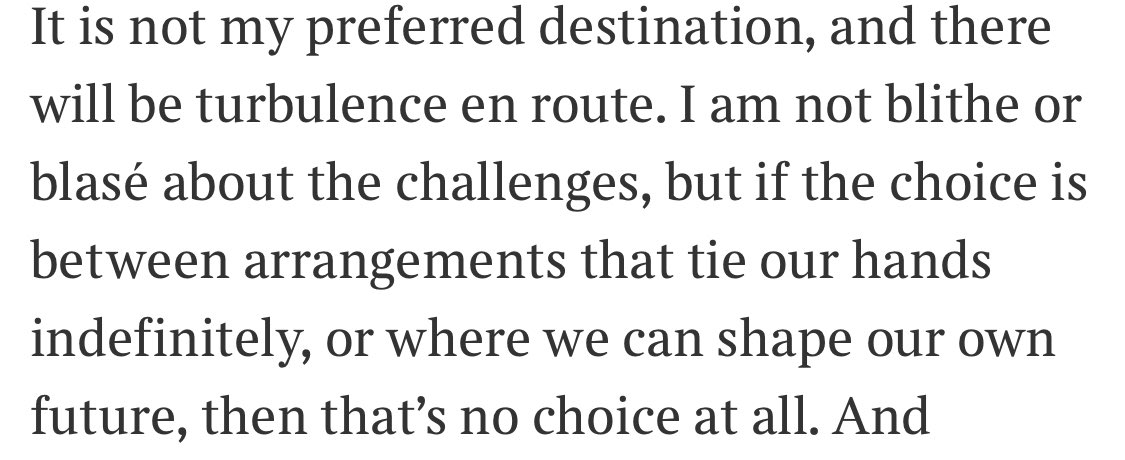
It is, I think, rather an over-statement by @SBarrettBar to describe this as a “consensus”: especially on a day when @HLConstitution said that it was an “open question”.
https://twitter.com/speccoffeehouse/status/1312352194881085441
If EU law is applicable/analogous here (itself a debatable question) then you have to remember that press releases can be “measures”. “Open question” is right here, I think.
• • •
Missing some Tweet in this thread? You can try to
force a refresh










